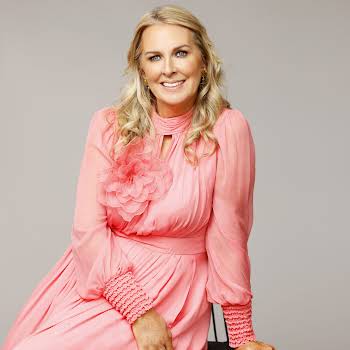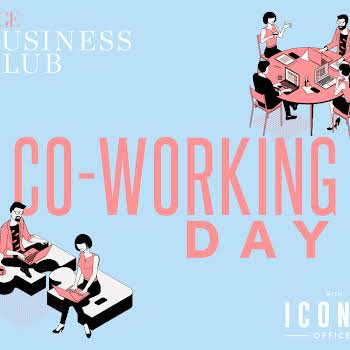
Sponsored
Mothers get left behind in the workplace but employing them is actually great for business: Here’s why
Sponsored By

By Sinead Brady
11th Aug 2021
11th Aug 2021
Sponsored By

Working mothers are good for the economy, good for the workplace and good for the home. So why do we make it so hard for them?
Working mothers – seldom do two words combined in one sentence reveal such complexity of experiences.
Almost 50 years after abolishing the Marriage Bar and as approximately 900,000 Irish women go to work, few of us consider its enduring impact. Nor do we consider the silent effect of the outdated and outrageous Article 41 on our working lives.
While legislative protection against workplace discrimination, equality legislation, the Maternity Protection Act, 1994 and The Maternity Protection Amendment Act, 2004 means much in theory has changed that protection is limited in practice. Research by the ILO shows that working mothers are still more likely to be employed part-time, unemployed, underemployed or in precarious employment. Mothers are at significant risk of reducing their paid working hours to do unpaid work while still working more hours in total. They are also more likely to take time out of the paid workforce and, as a result, suffer from pension poverty.
The paradox of motherhood
Motherhood and mothering are a living, breathing paradox, without a name but laden with the expectation; to work as if you don’t have children and to mother as if you don’t work. Where mothers can remain in paid work, they experience the workplace through various career, pay, time, opportunity and visibility gaps. While caring and rearing, mothers are expected to manage the load without complaint. For many other women, the path to motherhood is not straightforward and that in itself carries a gap. The multiplicity of layers and levels of agency women experience in becoming mothers is deeply dependent upon their sexual preference, financial independence and the social and cultural context they find themselves in. When motherhood intersects with race, gender, socioeconomic, marital status or educational attainment, the layers of inequality deepen.
The result is that women, and by extension mothers, find themselves occupying a liminal space, struggling with an identity caught somewhere between choice, motherhood and martyrdom.
And while motherhood is presented as a choice, culturally and socially, the silent narrative suggests otherwise. For those that choose not to have children, motherhood is placed in diametric opposition to womanhood. A WHO draft document highlighted this very point in its recent assertion that all women of childbearing age should refrain from drinking alcohol to protect the unborn child’s life. The underlying presumption, all women want to become mothers. The reality, not all women want to or can become mothers.
The result is that women, and by extension mothers, find themselves occupying a liminal space, struggling with an identity caught somewhere between choice, motherhood and martyrdom.
But motherhood is not a work-life dilemma, nor is it a problem to be fixed. The way we value work is the problem. Workplaces that expect work to happen between 9-5, Monday to Friday, until retirement, with little to no flexibility, fail us all.
This way of working means that globally women suffer from a gender pay gap predicted to take 136.5 more years to close. That gap for working mothers is on average 14% greater and widening. While intentions are good and public commitments are loud, the magnitude of the gap is accepted.
To make sense of this uncomfortable data, we create stories.
– “We have come a long way. It’s not that bad anymore.”
– “Women are protected in the workplace by law.”
– “We don’t discriminate in our business, and we have family-friendly work policies.”
– “Mothers have a choice. Maybe the right thing to do is to stay at home?”
– “Anyway, women who are mothers opt out of the workplace, if they wanted to, they could make it work.”
Those stories help mask the story the data reveals. But does it have to be this way?
Transferable skills
Shifting our cultural discourse and, by extension, the workplace narrative to match the reality of mothers’ lived experiences is possible. An all feet under the table approach that refuses to engage in binary discussions that pitch men against women, mothers against fathers, parents against non-parents.
Instead, an inclusive approach that recognises the skill, value and brilliance that mothers bring to the workplace. A narrative that explicitly gives voice to and acknowledges that all women work, but only some get paid. That work, both paid and unpaid, is the cornerstone upon which the global economy is built. Therefore all work done by all women is inherently valuable to the workplace and society at large. When paid and unpaid work done by women who are mothers is valued at the societal level research shows that educational attainment increases for their children, that intergenerational mental health outcomes improve, that overall positive health outcomes increase and that society at large benefits. Of course, that is not to mention the positive impact on every measurable business outcome. Broadening the wider societal and workplace conversation to reflect these facts is both the right thing to do at a human level that benefits business as well.
These deeply personal experiences build resilience, empathy and compassion. Gained in another way, they would rightly be declared as increasing your emotional intelligence and value in the eyes of your company.
So too, does widening the conversation to include transferable skills. If we accept that that skills can be transferred from the unpaid workplace to the paid for those who take part in sport, voluntary work or have other hobbies typically listed on our CV’s; then we must broaden our mindsets to include the transferable skills gained in motherhood.
When you became a mother, you transitioned out of the paid workforce into the unpaid workforce. If your company does not top up your maternity pay, you use your critical thinking and problem-solving skills to figure out how you and your new baby will survive on your reduced income. As you learn to care for your baby while recovering from birth, you research and made the decision to breastfeed or not, you learn about newborn sleeping patterns, developmental leaps, weaning, sleep training, babywearing. As your baby grows and your return to work creeps closer, you identify childcare, perhaps negotiate flexibility and navigate drop-offs and pick-ups. As you transition back into the paid workplace you do so while hitting your KPI’s and nailing your productivity.
For hundreds of thousands of women the path to motherhood is nothing close to that straightforward. Our workplaces are full of mothers who have lived and worked through the grief of miscarriage. Mothers who experienced stillbirth and the following day or week were back at work. Perhaps motherhood came through assisted conception, adoption or surrogacy. The conversation about the struggle to get pregnant, the decision to have a child or not, and pregnancy itself is rarely given a deserving voice in the workplace.
These deeply personal experiences build resilience, empathy and compassion. Gained in another way, they would rightly be declared as increasing your emotional intelligence and value in the eyes of your company.
The Future of Work
If more proof is needed as to the value mothers bring to the workplace the World Economic Forum (WEF) in their Future of Jobs Report 2020 tell us that the job landscape is changing. They suggest that the most in-demand workplace skills in 2021 are critical thinking and problem-solving. The workplace of tomorrow, they state, will place an increasingly high value on skills such as active learning, resilience, stress tolerance and flexibility. The WEF categorises the top 10 most in-demand skills into four categories, namely problem-solving, self-management, working with people and the ability to use and develop technology. Any mother who has struggled to manage it all and keep things afloat possess these skills in abundance and can give real-life examples. As the boundaries between job categories blur, transferable and cross-cutting skills learned, honed and developed in paid and unpaid employment are the future of employability.
When the world of work stops trying to fix mothers at work and instead chooses to fix the workplace, the rising tide will lift all boats.
We have evidence in abundance of the positive impact of mothers shaping this new narrative. These workplaces and these women are shifting mindsets around what it means to be a woman and a mother who works in the paid workforce. This list is not complete but it serves as the starting point to pause and think about when mothers at work are supported the possibilities are endless.
Ursula von der Leyen.
Michelle Obama.
Jacinda Ardern.
Mary Robinson.
Mary McAlese.
Serena Williams.
Kamala Harris.
Whitney Wolf Herd.
Anne O’Leary.
Chupi Sweetman.
Liz Cunningham.
Ranae von Meding.
These women show strength, fairness, leadership, compassion, humanity and great integrity as they advocate while mothering and working. Their skills lie at the very heart of our humanity that set us aside from algorithms and computers. These skills are developed in paid and unpaid workplaces and are transferable. They are also traits that research identifies most frequently with great leaders.
These skills are not owned uniquely by either men or women, mothers or fathers, parents or non-parents. They are human skills – skills by their very nature that are capable of being honed, built and developed year after year by everyone in the workplace. Imagine for one second if the G7 leaders gathered specifically to discuss a global approach to recognising the paid and unpaid work that all of us do, the value of that work to the global economy and to consider ways to close the gaps women experience in their working lives? Imagine if they did this instead of, or at the very least in addition to, discussing global tax. This is a G7 meeting worth having, one would benefit all of humankind in all parts of the world for generations to come.
It is now the job of our leaders, in the workplace, politics and society to broaden the narrative to include the skills that women who are mothers bring to the workplace, not just for mothers, but for the benefit of all.























